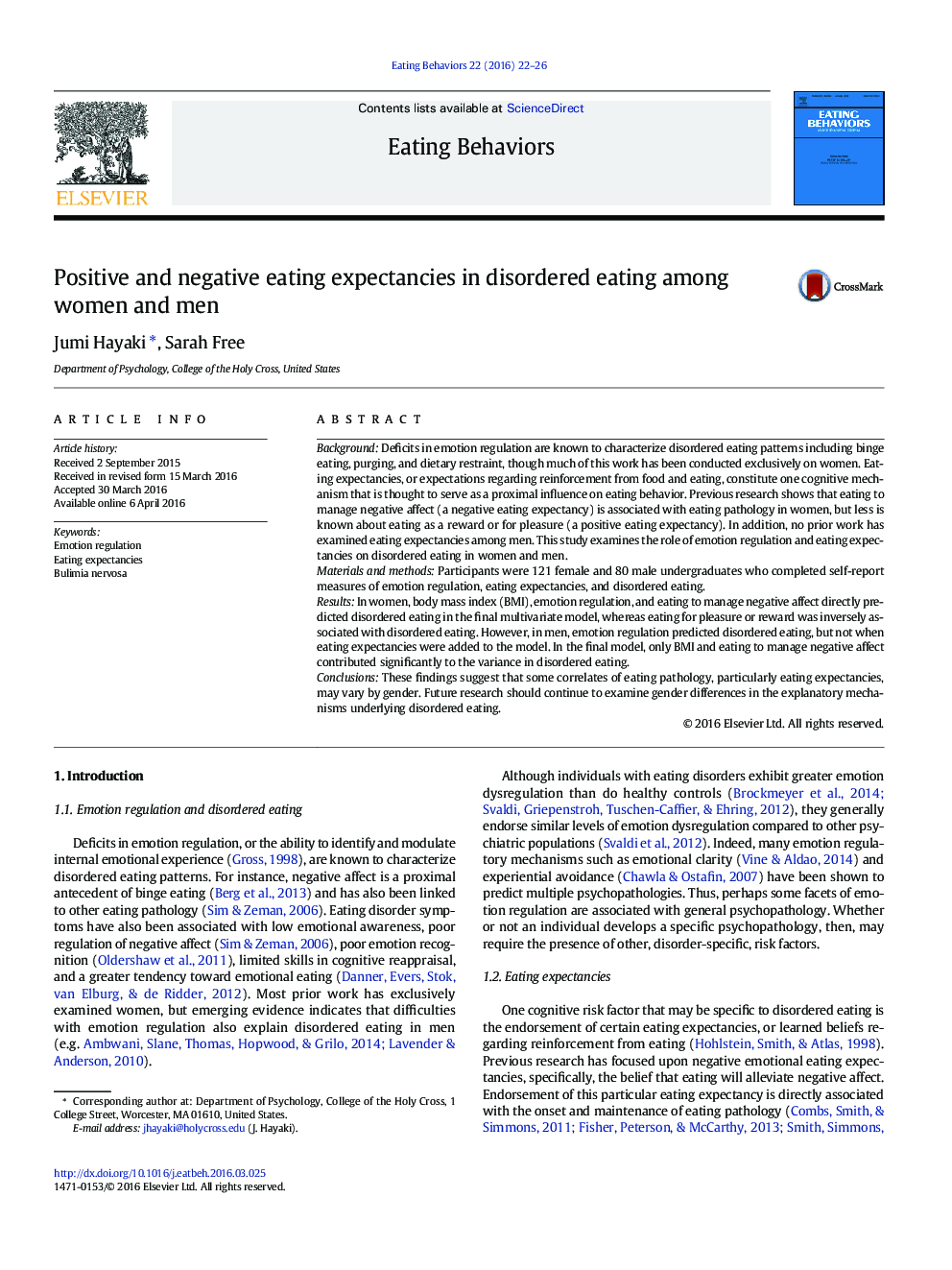| کد مقاله | کد نشریه | سال انتشار | مقاله انگلیسی | نسخه تمام متن |
|---|---|---|---|---|
| 906184 | 1472881 | 2016 | 5 صفحه PDF | دانلود رایگان |
• Eating expectancies are learned beliefs about food that relate to eating pathology.
• Eating to manage negative affect is directly associated with disordered eating.
• Eating for pleasure is inversely associated with disordered eating.
• In this study, both eating expectancies predicted disordered eating in females.
• In males, only eating to manage negative affect predicted eating pathology.
BackgroundDeficits in emotion regulation are known to characterize disordered eating patterns including binge eating, purging, and dietary restraint, though much of this work has been conducted exclusively on women. Eating expectancies, or expectations regarding reinforcement from food and eating, constitute one cognitive mechanism that is thought to serve as a proximal influence on eating behavior. Previous research shows that eating to manage negative affect (a negative eating expectancy) is associated with eating pathology in women, but less is known about eating as a reward or for pleasure (a positive eating expectancy). In addition, no prior work has examined eating expectancies among men. This study examines the role of emotion regulation and eating expectancies on disordered eating in women and men.Materials and methodsParticipants were 121 female and 80 male undergraduates who completed self-report measures of emotion regulation, eating expectancies, and disordered eating.ResultsIn women, body mass index (BMI), emotion regulation, and eating to manage negative affect directly predicted disordered eating in the final multivariate model, whereas eating for pleasure or reward was inversely associated with disordered eating. However, in men, emotion regulation predicted disordered eating, but not when eating expectancies were added to the model. In the final model, only BMI and eating to manage negative affect contributed significantly to the variance in disordered eating.ConclusionsThese findings suggest that some correlates of eating pathology, particularly eating expectancies, may vary by gender. Future research should continue to examine gender differences in the explanatory mechanisms underlying disordered eating.
Journal: Eating Behaviors - Volume 22, August 2016, Pages 22–26
